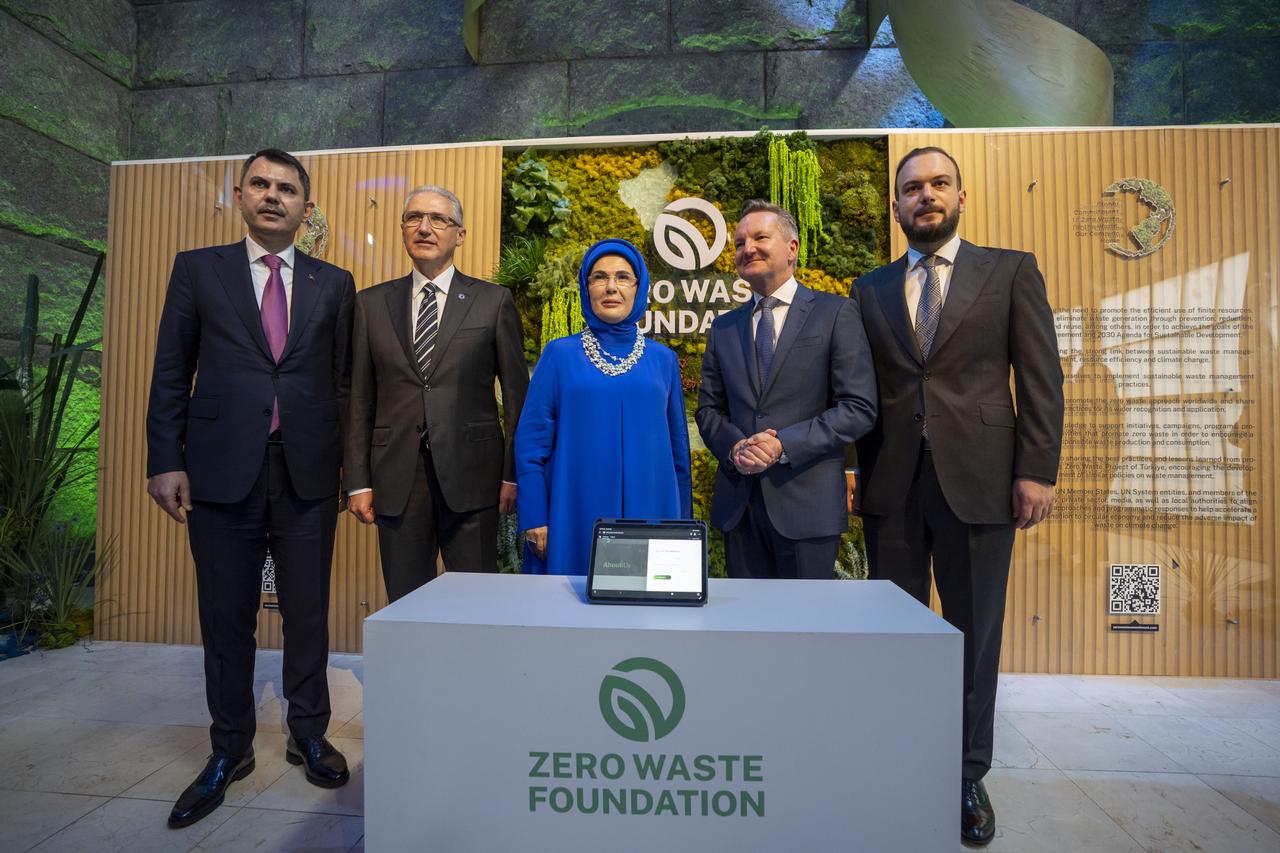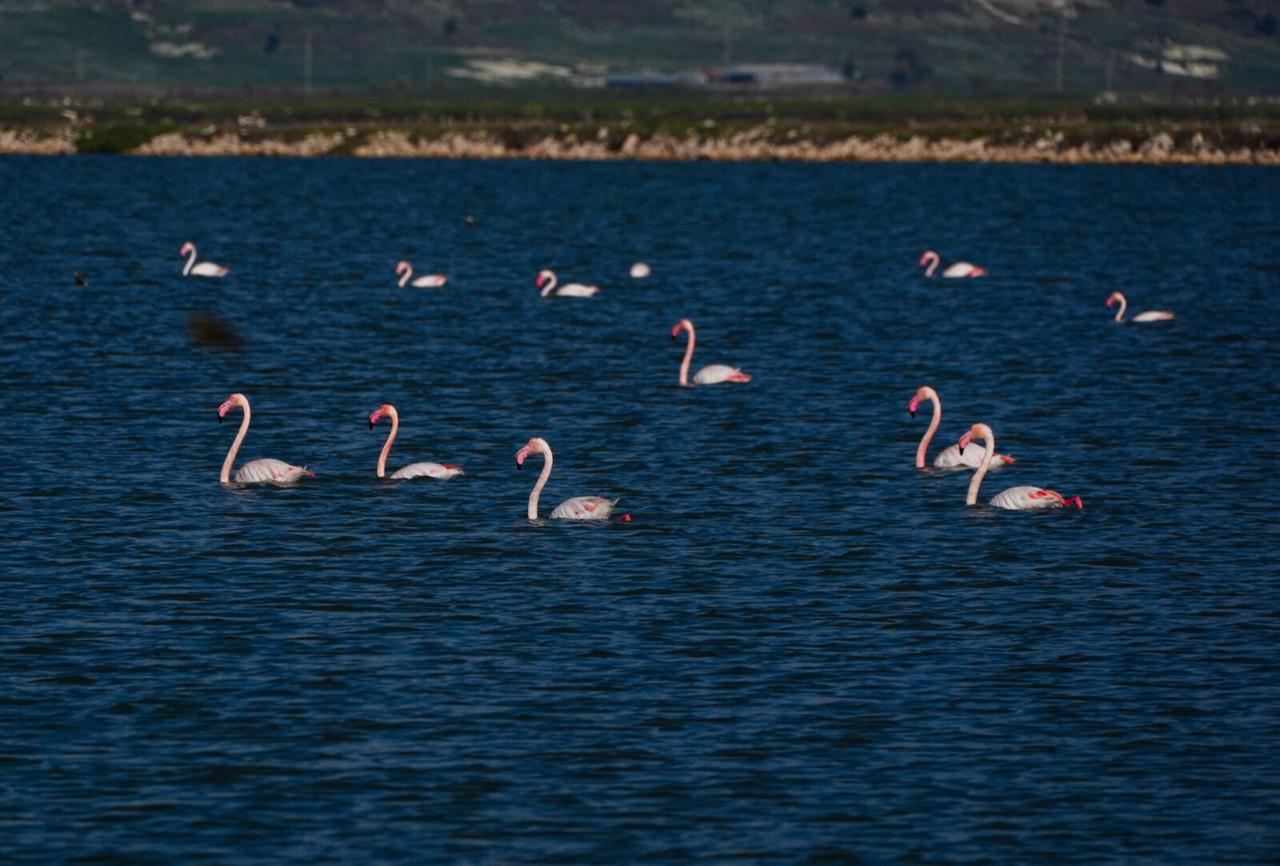
Türkiye is making a bold move in bidding to host COP31, aiming to assert itself as a key player in global climate diplomacy.
The race to host one of the world's most prestigious climate conferences has placed Türkiye in the international spotlight.
COP31 is where countries hash out global strategies to combat climate change, laying out plans for reducing emissions and promoting sustainability.
For world leaders, the conference represents both prestige and responsibility, requiring them to consider not just national interests but the environmental future of the planet.
Türkiye's bid signals a strong stance on the global stage. With Australia and China also vying for the event, Türkiye’s persistence stands out. Hosting COP31 promises not only diplomatic clout but tangible economic gains, from boosting tourism to infrastructure projects and green initiatives.
On Sept. 20, New York hosted the Zero Waste Blue exhibition at the United Nations headquarters, a key showcase of Türkiye's commitment to environmental initiatives and international collaboration.
Both Türkiye and Australia had formally submitted their bids to host COP31 back in 2022.
Led by Turkish First Lady Emine Erdogan, the exhibition highlighted efforts to protect marine ecosystems and promote zero-waste practices worldwide.
Australia’s Minister for Climate and Energy, Chris Bowen, attended the event. His presence was seen as a signal that underscored Türkiye’s serious bid for COP31.

COP31 is a rare platform for countries to present climate policies. EU nations are emphasizing carbon markets and renewable energy investments.
The U.S. is phasing out fossil fuel support while extending green energy funding as a diplomatic tool.
China uses energy infrastructure projects and regional investments to solidify both economic and environmental influence.
Australia is campaigning to host the conference on its soil, garnering backing from Pacific Island nations.
Türkiye’s approach goes beyond hosting. Its 2053 net-zero emissions target and zero-waste initiatives demonstrate concrete environmental commitment. In 2024 alone, Türkiye's zero-waste programs diverted an estimated 1.2 million tons of waste from landfills, reflecting tangible progress.
These steps enhance Türkiye’s diplomatic weight and position it as a proactive actor in global climate discussions.

Australia is actively pushing to host COP31 in Adelaide, ramping up its diplomatic outreach to Pacific island nations and showcasing domestic renewable energy projects as evidence of its readiness. But Türkiye’s firm stance complicates the effort.
China’s involvement adds another layer of complexity. Its maneuvers are less about environmental policy and more about strategic positioning.
Türkiye is closely tracking the diplomatic actions of China and Australia, ready to counter or align where strategic advantage lies.
This strategy allows Türkiye to leverage environmental diplomacy as a tool of soft power while boosting international visibility.
Türkiye’s environmental strategy centers on energy efficiency, zero-waste programs, and marine ecosystem protection.
The 2053 net-zero emissions goal underpins the nation’s long-term strategy, with renewable energy expansions and urban sustainability projects at its core. Yet global stakeholders are closely watching implementation and compliance with international oversight.
Hosting COP31 would also yield economic and strategic benefits. Tourism and infrastructure development tied to the conference could generate substantial gains, strengthening Türkiye’s regional leadership.
COP31 would highlight Türkiye’s role in environmental diplomacy while opening opportunities for new international partnerships and regional collaboration.
Türkiye’s bid for COP31 is more than an effort to host a climate conference—it’s a decisive move for global diplomacy and visibility.
The competition between China and Australia is shaping international climate diplomacy dynamics.
The meeting between Emine Erdogan and Chris Bowen exemplifies Türkiye’s diplomatic reach and environmental leadership.
Hosting COP31 would not only provide economic and strategic advantages but also elevate Türkiye’s environmental profile and solidify its position as a regional leader.
Türkiye is not simply bidding to host—it is positioning itself as a strong, active player in shaping global climate policy.